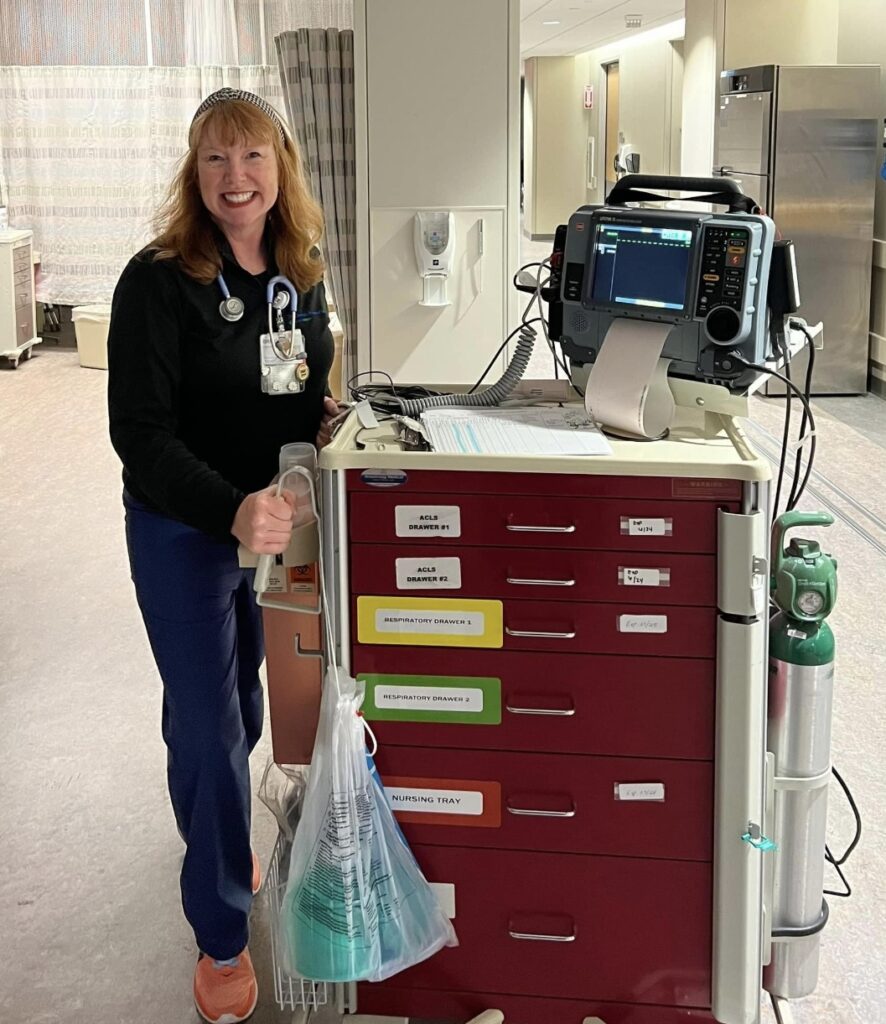
NEW STUDY REVEALS MENOPAUSAL SYMPTOMS COULD BE RISK FACTORS FOR CARDIOVASCULAR DISEASE
Women who experience frequent migraines, night sweats and hot flashes in early adulthood may be at increased risk of heart disease or stroke, a new study suggests.
The study aimed to determine if there was a link between common menopausal symptoms such as migraines and vasomotor symptoms such as night sweats and hot flashes, and future development of cardiovascular disease or stroke in women who are premenopausal or have gone through menopause.
Research for the study was conducted by examining data from more than 1,900 women who took part in the Coronary Artery Risk Development in Young Adults study between the ages of 18-30. The women’s health was monitored over the span of 15 years in order to analyze the relationship between vasomotor symptoms, migraines and cardiovascular health.
The findings were published in February of 2024 by Menopause, the journal of The Menopause Society. Dr. Stephanie Faubion, the medical director for The Menopause Society, said in a press release that there is a need to consider symptoms primarily in women when assessing cardiovascular prediction models.
Per the press release, “This study highlights the importance of considering female-predominant or female-specific factors such as history of migraine and persistent vasomotor symptoms when assessing cardiovascular risk in women,” Faubion said. “There is a critical need to further refine existing cardiovascular disease risk-prediction models to identify women more accurately at future risk. In the interim, risk factor optimization is important for women with both of these conditions.”
After adjusting for risk factors such as age, cigarette use, levels of systolic and diastolic blood pressure, fasting glucose, high- and low-density cholesterol, and triglycerides, the studies findings revealed that women who experience frequent migraines and vasomotor symptoms are 1.5 times as likely to have a heart disease, and 1.7 times as likely to have a stroke than women who don’t experience both of these menopausal symptoms.
Rebecca Koehl, a primary care physician at Mercy Health Hospital, says that studies like this one are important because of how common the risk factors are in women.
“Hot flashes and migraines are both known common symptoms of menopause, so women who experience them don’t always know that they’re linked to cardiovascular disease,” Koehl said. “There is a lack of research regarding menopause, so studies like these are needed in order for physicians to know whats cause for concern.”
The Menopause Society revealed that hot flashes affect almost 80% of women going through menopause, and migraines are experienced by 17.5% of women.
Although vasomotor symptoms and migraines affect a large majority of women, there has been little research regarding menopause, and women’s health in general. President Joe Biden issued an executive order in March of 2024 calling for an advancement in women’s health research, including health conditions that specifically affect women, and more research into midlife conditions such as menopause.
Koehl agreed that the executive order was a step into the right direction to close the gap in women’s health research, and she elaborated on why this study is setting a tone for future research into women’s health.
“I feel that these studies are serving as a basis for a large push into women’s health in the coming years,” Koehl said. “We have studied men and womens heart health previously, but we have neglected to acknowledge that women may have different risk factors from men, and how menopause could play a role in those factors.”
“We have studied men and womens heart health previously, but we have neglected to acknowledge that women may have different risk factors from men, and how menopause could play a role in those factors.”
Mercy Health Hospital primary care physician Rebecca Koehl
Carlie Murdock, a nursing student at Northern Kentucky University, agreed that more research is essential for womens menopausal health, and stressed the importance of heart health in regards to menopause.
“I remember learning about how the leading cause for death in women is heart disease and how it usually shows up later in women than men, but there’s a lot of evidence that symptoms started showing up in women much earlier than they knew.” Murdock said. “This study can be an early warning to women to be aware of their heart health, and to seek care if they feel like something isn’t right, especially at a time when their body is going through so much change.”
“This study can be an early warning to women to be aware of their heart health, and to seek care if they feel like something isn’t right, especially at a time when their body is going through so much change.”
Northern Kentucky University nursing student Carlie Murdock
The study reflected a similar tone about the importance of controlling your destiny. Additional data presented in a follow-up study points to early intervention and treatment being pivotal for prevention.
The second study, consisting of the same test group, aimed to find out if early warning signs could be determined for vasomotor symptoms. The study found that the biggest factors for developing persistent hot flashes and night sweats were having depression, smoking cigarettes and having migraines.
Acknowledging risk factors and working to combat them at a young age could potentially lessen the risk of vasomotor symptoms during menopause, which could in turn lower the risk of cardiovascular disease and stroke later in life.
Bridget Negrete, a nurse at Mercy Health Hospital, says that making small changes in your everyday life can potentially help to lower your overall risk factor for cardiovascular disease or stroke later in life.
“There are factors like exercise, clean eating and cutting out toxins like nicotine that can improve your cardiovascular health,” Negrete said. “When women go through menopause, there is exessive stress put on their bodies. Taking preventative measures before they reach menopause can potentially help with their symptoms and risk factors. Keeping their routines up even when they are going through menopause, and having healthy sleep habits can also help reduce future risks.”
The follow-up study came to a similar conclusion as Negrete, concluding that risk factors for vasomotor symptoms can be identified early, and examining these factors can be helpful for prevention and treatment.
“I do think that both of these studies make a very good point. If we are able to identify vasomotor symptoms early, we could potentially treat them and prevent that extra risk of stroke and cardiovascular disease in the future,” Negrete said. “I’m hopeful that the coming years bring even more research of women-specific health issues to light and we are able to prioritize prevention.”
“I’m hopeful that the coming years bring even more research of women-specific health issues to light and we are able to prioritize prevention.”
Mercy Health Hospital nurse Bridget Negrete


